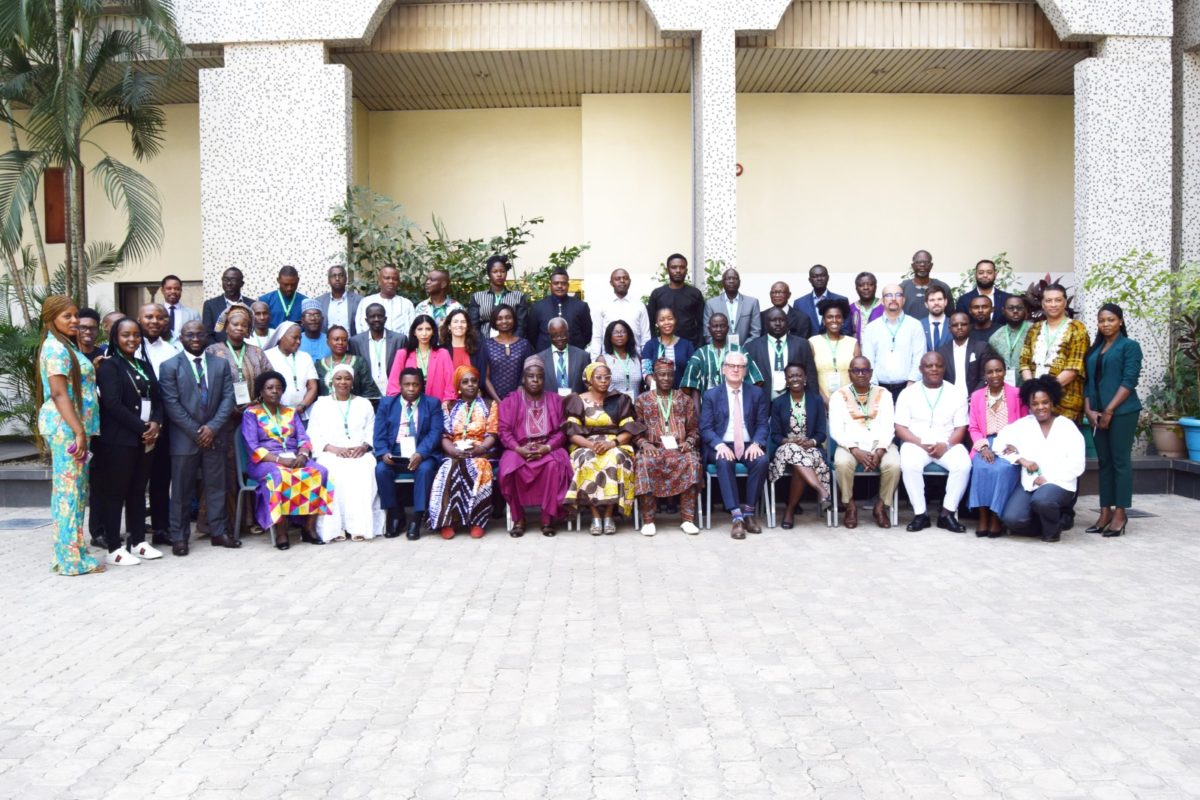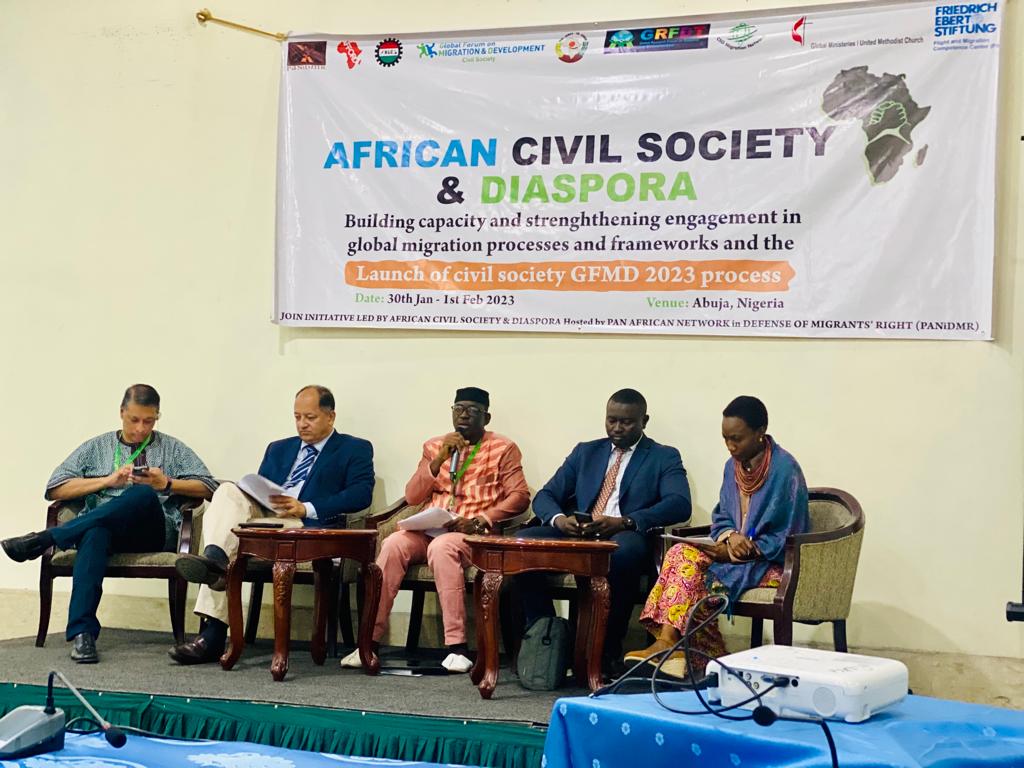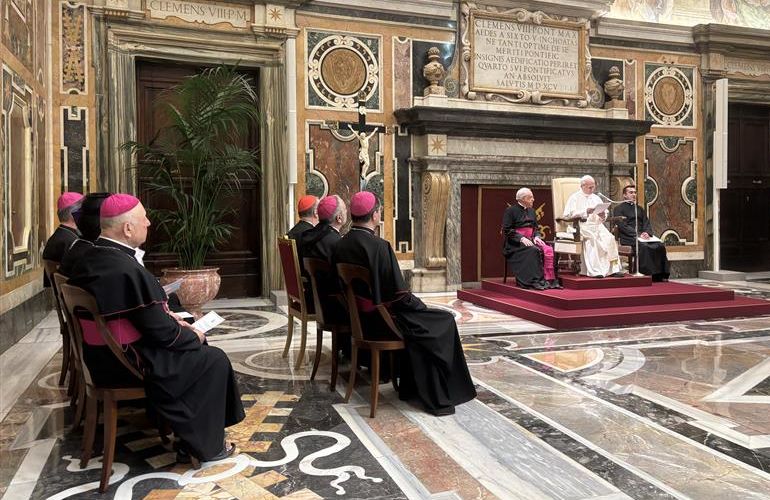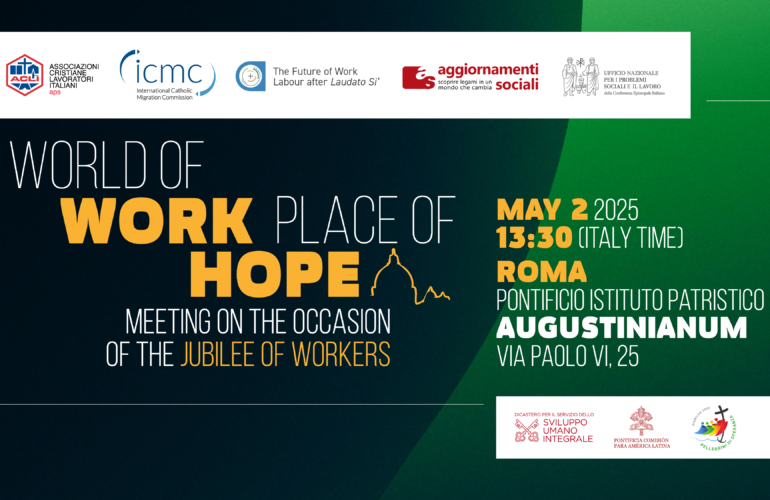African Civil Society and Diaspora Launch the Global Civil Society GFMD Process for 2023
During a recent forum in Abuja, Nigeria, civil society actors called on States to respond to climate-induced mobility, protect the rights of migrant workers, and include diaspora groups.

The Abuja Civil Society Forum, held in Abuja, Nigeria, from 30 January to 1 February 2023, brought together representatives of African civil society and diaspora from all regions of Africa to launch the 2023 Civil Society Global Forum on Migration and Development (GFMD)* process.
The Abuja Forum was a joint initiative of the Pan-African Network in Defense of Migrants’ Rights (PANiDMR) and four other African civil society and diaspora networks (AFFORD, ECDPM, GRFDT, and ITUC-Africa). It was hosted by PANiDMR and its member, the Civil Society Network on Migration and Development in Nigeria, and included participation from trade unions, youth, the GFMD Business and Mayors mechanisms, government representatives, and international and African migration agencies.
The impact of climate change on human mobility is a central, cross-cutting theme of the 2023 GFMD. The Abuja Statement notes the multiple threats to people’s lives and properties in Africa posed by climate-induced mobility, and ramifications for food insecurity, loss of livelihoods, public health crises, and conflict.
The International Catholic Migration Commission (ICMC) supported the work of the organizing partnership in its capacity as coordinating office of the Civil Society Mechanism of the GFMD, which facilitates the engagement of civil society organizations in the GFMD process. “We’re delighted to have launched this year’s GFMD Civil Society process here in Abuja, together with such a diverse range of African civil society and diaspora representatives,” said Colin Rajah, coordinator of the Civil Society Mechanism at ICMC.
Abuja Forum discussions focused on three of the six GFMD priorities for 2023: climate change and mobility, labor migration, and diaspora. “All of the GFMD priorities are of course highly relevant,” explains Mamadou Goïta, chair of PANiDMR. “But these are the most relevant for Africa, which is why we chose to structure our discussions in this way.”
Discussion outcomes were set out in Building the Road from Abuja to Paris: the Abuja Statement, issued on 1 February. The Abuja Statement reaffirms civil society’s commitment to engaging in the 2023 GFMD process, outlines the current challenges Africa and its diaspora are facing, and makes recommendations for action by governments in the three GFMD priority areas.
Recommendations for States include establishing early warning preparedness systems and cross-border partnerships to promote safe and dignified mobility linked to climate change, and working with affected communities and populations to develop policies and frameworks that respond effectively to climate-induced migration. The statement also calls on States to prioritize immediate funding of the loss and damage fund agreed upon at the United Nations Climate Change Conference COP27 in November 2022, with a focus on accessibility for people affected by climate-related disasters.

The Abuja Statement notes the overrepresentation of African migrant workers in the informal economy and their exclusion from healthcare, social security, workplace protections, and collective bargaining. It calls on States to adopt the relevant UN and International Labor Organization (ILO) conventions and regulations and promote the ILO Decent Work Agenda. It also recommends a number of specific labor mobility policy measures, including temporary mobility schemes, expanded visa pathways across skills categories, and bilateral labor mobility agreements that guarantee the fundamental rights of migrant workers.
The Abuja Forum sought to broaden the discussion on the role of the diaspora in global migration. “Diaspora is not just about remittances,” explains PANiDMR chair Mamadou Goïta. “It’s also about the cultural, intellectual and technical contributions diaspora communities make to their countries of origin, transit, and residence, and the way they amplify the concerns and cultures of migrants and their communities of origin.”
The statement calls for governments to take a lead role in establishing diaspora networks for investment, development, and culture, implementing measures to incentivize investment, and engaging diaspora organizations as technical partners in actions to promote skills transfer and job opportunities in countries of origin. It also calls on States to ensure that diaspora communities can access and retain their civil and political rights in their countries of origin through measures such as voting abroad.
Discussions at the Abuja Forum highlighted the need to refocus on the specific migration context in Africa. Most African migration flows are intraregional, and many situations of irregularity and legal pathways for migration within Africa are fairly well-established. As such, it is crucial to translate the priorities of global migration processes into continental measures for Africa. Forum participants called on States to prioritize regional and bilateral cooperation, develop robust national policy frameworks, recognize local innovation and expertise by including local authorities in the design and implementation of relevant policies, and support crucially important collaboration between diaspora, trade unions, and civil society.
The 2023 GFMD process is chaired by the government of France, which is coordinating a year-long program of activities ahead of the 14th GFMD Summit in early 2024. This program includes thematic workshops in areas including environmental displacement and the impact of climate change on labor mobility, and an event in Paris to celebrate the social and cultural contributions of migration and migrants to origin, transit, and receiving countries.
Reflecting on the launch of the GFMD Civil Society process at the Abuja Forum, Colin Rajah described how “our task now is to ensure the priorities and recommendations from this forum, highlighted in the Abuja Statement, are popularized among our global civil society community, and collectively taken forward into the wider GFMD process.”
***
* The Global Forum on Migration and Development (GFMD) is a government-led initiative that brings together States, city mayors, business representatives, and civil society organizations concerned with migration and development issues. Its goal is to discuss a range of topics on migration, propose innovative solutions, share policy ideas, and create partnerships and cooperation in an informal dialogue setting. ICMC coordinates civil society engagement in the GFMD since 2011.
***
Find out more about the GFMD Civil Society Mechanism and the 2023 GFMD.

Rachel Westerby
Independent writer, editor and researcher (asylum and migration).



